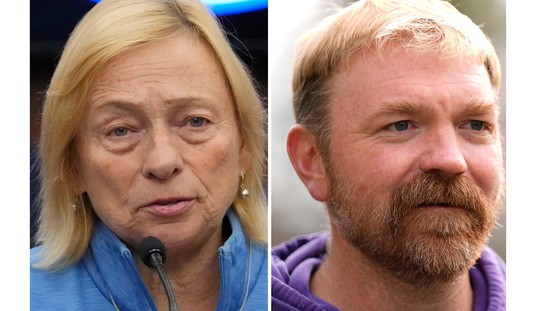If you’ve been following the news out of Virginia this year you’re likely already aware of Governor Terry McAuliffe’s recent executive order restoring voting rights to convicted felons. Rather than some sort of rehabilitation program for former inmates trying to reestablish themselves in civil society, McAuliffe went several steps further, including convicts who are still in prison or on probation. That list contained at least 132 sexual predators who were considered too dangerous to cut loose, but apparently were fine to run for office or help elect those who would be tasked with enforcing the law. The fact that this effort would likely pay off in huge numbers of new Democrats in a swing state right before a presidential election was widely considered too impolite to bring up in cable news circles.
It looked like a done deal, too, at least until the dictate was challenged through the normal channels. The state supreme court brought the hammer down this week and said that the Governor was exercising a power which simply does not exist. (NPR)
The Virginia Supreme Court has ruled that Gov. Terry McAuliffe doesn’t have the authority for a blanket restoration of voting rights to the state’s felons.
McAuliffe had issued a sweeping executive order in April that affected 206,000 ex-offenders in the state.
In a 4-3 ruling, the state’s justices said under the state constitution, McAuliffe didn’t have the authority for such a proclamation.
“Never before have any of the prior 71 Virginia Governors issued a clemency order of any kind — including pardons, reprieves, commutations, and restoration orders — to a class of unnamed felons without regard for the nature of the crimes or any other individual circumstances relevant to the request,” the majority wrote.
The majority ruling (PDF) goes on to say that previous governors have considered such an option, but all concluded that “no such power exists.” I don’t think most of us need to be state constitutional scholars to figure that one out. It’s true that the Governor can offer pardons or clemency to prisoners pretty much at will and that the legislature has very little to say about it. But that’s for individuals, with each case ostensibly being considered on its own merits with an eye toward any possible miscarriage of justice or excessive punishments. That’s quite different from rewriting the statues regarding how and when everyone who is convicted of a crime has their various rights restored to them.
The Governor’s power seems, at least to the layman, to be a bit different from that of the President of the United States. Presidents can and have offered blanket grants to classes of people. One of the most recent examples would be Jimmy Carter’s pardon of Vietnam War draft dodgers. That is based in Article II, Section 2, which grants the President the power to grant reprieves and pardons for offenses against the United States. Is the power of the Governor of Virginia different than that? It’s an interesting question and one which falls back on the state constitution, Article V, Section 12.
The Governor shall have power to remit fines and penalties under such rules and regulations as may be prescribed by law; to grant reprieves and pardons after conviction except when the prosecution has been carried on by the House of Delegates; to remove political disabilities consequent upon conviction for offenses committed prior or subsequent to the adoption of this Constitution; and to commute capital punishment.
You can almost see McAuliffe’s team having an argument to make because the wording is rather similar. But pardons for “crimes against the United States” ( a vague term which exists nowhere else in our body of law) has been interpreted as a fairly sweeping description. The Governor is able to remove “political disabilities” after conviction for offenses committed. That sounds rather specific to individual cases and that’s the interpretation which the courts and previous governors have apparently decided to adopt.
But the bottom line is that the current system will remain in place, at least until such time as the legislature decides to give it a fresh look and perhaps change the law. In the meantime, the Democrats will have to look elsewhere for a new pool of voters.









Join the conversation as a VIP Member